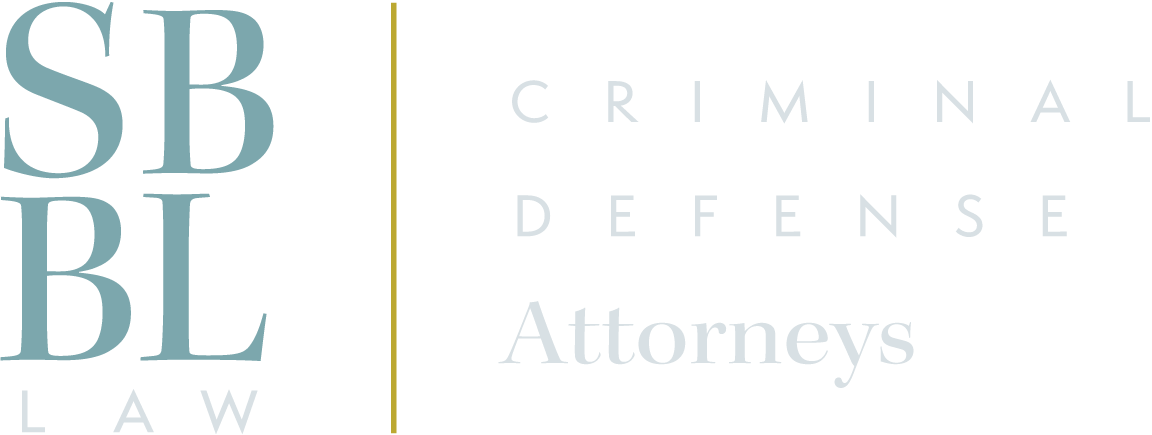Murder-for-Hire Charges
It is a federal crime to hire a person to murder someone (i.e., pay or promise to pay something of pecuniary value) when doing so affects interstate or foreign commerce. See 18 U.S.C. § 1958. Traveling interstate, using a telephone, or using the internet are common means of affecting interstate or foreign commerce.
The penalties for murder-for-hire vary greatly depending on the facts of the case — from as little as no incarceration to 10 years if no injury or death occurs to being eligible for the death penalty if death actually occurs. The SBBL Law team practices federal criminal defense throughout the United States and has experience defending murder-for-hire cases, including obtaining a complete dismissal.
Elements of the Crime
In order to prove a murder-for-hire case, according to the US Department of Justice, the prosecutor must prove each of the following elements of the crime beyond a reasonable doubt:
That the defendant at or about the time charged in the indictment traveled or caused another to travel in interstate commerce or used or caused another to use the mail or any facility in interstate or foreign commerce;
That the travel or use of the mail or interstate facility was done with the intent that a murder be committed in violation of the laws of any State or the United States; and
That anything of pecuniary value was received or promised or agreed to be paid as consideration for the murder.
Penalties for Federal Murder for Hire Charges
The murder-for-hire statute provides three different penalties depending on the facts of the case:
If a person is actually killed, the penalty is life in prison or the death penalty and up to a $250,000 fine;
If a person suffers personal injury, the penalty ranges from zero to 20 years in prison and/or a fine;
If there is no death or serious injury, the penalty ranges from zero to 10 years in prison and/or a fine.
18 U.S.C. § 1958(a).
Common Examples of Murder-for-Hire Cases:
Example A – A “traditional” murder-for-hire case involving an informant or undercover agent
In a typical murder-for-hire case, law enforcement is notified that a person (the accused) wants to kill another person (the “target”) and is looking for another person (the “hitman”) to murder the target in exchange for payment or reward. How the investigation of this threat is handled depends heavily on the facts of the case. It is, however, standard procedure for law enforcement to try and introduce an informant or undercover agent or officer to the accused so the informant or undercover agent can monitor and secretly record the accused plotting the scheme. The takedown or arrest usually occurs once the government is confident that all of the elements of the crime have been established and usually recorded.
Example B – A dark web murder-for-hire case or solicitation of murder on the internet:
It is increasingly common for people to try and use the anonymity of the internet, particularly the dark web, to protect themselves from getting ensnared in an undercover operation like the one above. A quick search of Google reveals publicly available websites that advertise hitman services. Often, these websites contain a link or links to the dark web and instructions on how to reach these “dark web hitman” websites. These dark web hitman websites take on a variety of appearances. These websites offer an a-la-carte menu of services ranging from murder to “roughing” somebody up to maiming to making their death appear to be an accident. Prices vary accordingly, and payment is often made through cryptocurrency.
However, many, if not all, of these types of sites are scams or not what they appear to be. Some take the money and dare the person to report them to law enforcement. If they are not “real” hitman sites, can you still get in trouble for plotting to murder somebody on these types of sites? Absolutely.
How? Any number of ways:
The website may be operated by a government (US or foreign) as part of an undercover operation or sting, so, in effect, whoever uses the site is communicating directly with the government or law enforcement;
The government may have infiltrated the site, possibly by gaining the cooperation of the person(s) operating the scam, by conducting an undercover operation against the site itself, or by searches and seizures of the site, i.e., search warrants, or by intercepting communications between the site and the accused, perhaps by getting court authorized authority for wiretaps or through other means.
The contents of the website may have been hacked or the communications intercepted by a hacker, who, in turn, provides this information to the government or law enforcement.
Common Defenses to Murder-for-Hire Charges
Withdrawal
Entrapment
Legal or factual impossibility
Lack of intent
No federal nexus

